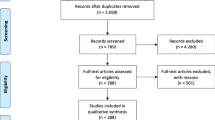Summary
The evaluation of health interventions has become internationally known as Health Technology Assessment (HTA) and has received increased attention as an instrument for supporting policy decisions in health care in recent years. HTA is a multidisciplinary process that summarises information about the medical, social, economic and ethical issues related to the use of new, and established health interventions in a systematic, transparent, unbiased, robust manner. HTA strives to provide pertinent information to help formulate safe and effective health policies that focuse on the patient while aiming to achieve the best use of assets available.
Zusammenfassung
Die "Evaluation" von Gesundheitsleistungen – unter dem Oberbegriff Health Technology Assessment (HTA) bekannt geworden – hat in den letzten Jahren als Instrument der gesundheitspolitischen Entscheidungsunterstützung an Bedeutung gewonnen. Dabei werden neue, aber auch etablierte medizinische Verfahren aus multidisziplinärer Perspektive und mithilfe unterschiedlicher Methoden auf ihre tatsächliche Wirksamkeit, ihre angemessene und effiziente Anwendung, auf Qualitätsveränderungen, klinische und organisatorische Auswirkungen, sowie gesellschaftliche Akzeptanz bewertet. Da HTA als Instrument der Qualitätssicherung und Kostendämpfung sowie Steuerung eines "angemessenen" Einsatzes medizinischer Verfahren zum Einsatz kommt, sind die Transparenz der Bewertungskriterien und die Nachvollziehbarkeit des Bewertungsprozesses von großer Wichtigkeit.
Similar content being viewed by others
Referenzen
Perleth M. Evidenzbasierte Entscheidungsunterstützung im Gesundheitswesen. Konzepte und Methoden der systematischen Bewertung medizinischer Technologien (Health Technology Assessment) in Deutschland. WiKu-Verlag, Bertin, 2003
Busse R, Orvain J, Drummond M, Gurtner F, Jørgensen T, Jovell A, Malone J, Perleth M, Wild C. Best practice in undertaking and reporting HTA. ECHTA Working Group 4 Final Report, 2001
Wild C. Health Technology Assessment. Fischer R und H Tragl (Hrsg). Qualitätssicherung in der Medizin, Wien, pp 249–264, 2000
European Network for Health Technology Assessment. http://www.eunethta.net/HTA/. zitiert am 07.09.2007
Pfizer & Finnish Innovation Fund. Cox-Report: Financing sustainable healthcare in Europe: new aproaches for new outcomes. verfügbar unter: http://wwwsustainhealthcareorg/. zitiert am 07.09.2007. 2007
Ludwig Boltzmann Institut für Health Technology Assessment/LBI-HTA. (Externes) Manual: Selbstverständnis und Arbeitsweise. verfügbar unter: http://hta.lbg.ac.at/media/pdf/Externes%20Manual.pdf, 2007
Banta DH, Luce BR. Health Technology and its Assessment. An international perspective. Oxford Medical Publications, Oxford, 1993
Jakubowski E, Perleth M, Busse R. "Best practice": state of the art and perspectives in the EU for improving the effectiveness and efficiency of European health systems. European Commission, Directorate-General for Employment, Industrial Relations and Social Affairs, Luxembourg, 1999
Geraedts M. Evidenz zur Ableitung von Mindestmengen in der Medizin. verfügbar unter: http://www.bundesaerztekammer.de/downloads/ZZGutachten.pdf, 2003
Wild C. Ethics of Resource Allocation: Instruments for rational decision-making in support of a sustainable health care. invited paper. Poiesis & Praxis Int J Ethics Sci Technol Assessment, 3(4): 296–309, 2005
Wild C, Zechmeister I. Gestaltungs von Gesundheitspolitik: Rationalitäten einer gerechten Verteilungspolitik – Health Technology Assessment als Mittel zum Zweck. Kurswechsel Sondernumme Wa(h)re Gesundheit? Gesundheitssystem im Wandel, 2: 87–98, 2007
Perleth M, Busse R. Health Technology Assessment (HTA) – Teil und Methode der Versorgungsforschung. Gesundh okon Qual Mang, 9: 172–176, 2004
Carlsson P. Health technology assessment and priority setting for health policy in Sweden. Int J Technol Assessment Health Care, 20(1): 44–54, 2004
Langer T. Horizon Scanning System (HSS). An Overview. verfügbar unter: http://htalbgacat/media/pdf/HTA-Projektbericht_002pdf, 2006
Institute of Medicine/IOM. Setting Priorities for Health Technology Assessment – a model process. National Academy Press, Washington D.C., 1992
Oortwijn W. First Things First-Priority Setting for Health Technology Assessment Dissertation, 2000
Sauerland S. Die kritische Rolle wissenschaftlicher Evidenz im Rahmen von Health Technology Assessment. Bundesgesetzblatt Gesundheitsforschung Gesundheitsschutz, 49(3): 251–256, 2006
Deutscher Sachverständigenrat für die Konzertierte Aktion im Gesundheitswesen. Sondergutachten: Gesundheitswesen in Deutschland. Kostenfaktor und Zukunftsbranche. Band II. Verlag, Nomos, 1998
Deutscher Sachverständigenrat für die Konzertierte Aktion im Gesundheitswesen. Sondergutachten: Gesundheitswesen in Deutschland. Kostenfaktor und Zukunftsbranche. Band III. Verlag, Nomos, 1998
Author information
Authors and Affiliations
Corresponding author
Rights and permissions
About this article
Cite this article
Wild, C., Gartlehner, G. Health Technology Assessment – die Bewertung medizinischer Interventionen. Wien Med Wochenschr 158, 522–529 (2008). https://doi.org/10.1007/s10354-008-0547-6
Received:
Accepted:
Issue Date:
DOI: https://doi.org/10.1007/s10354-008-0547-6




